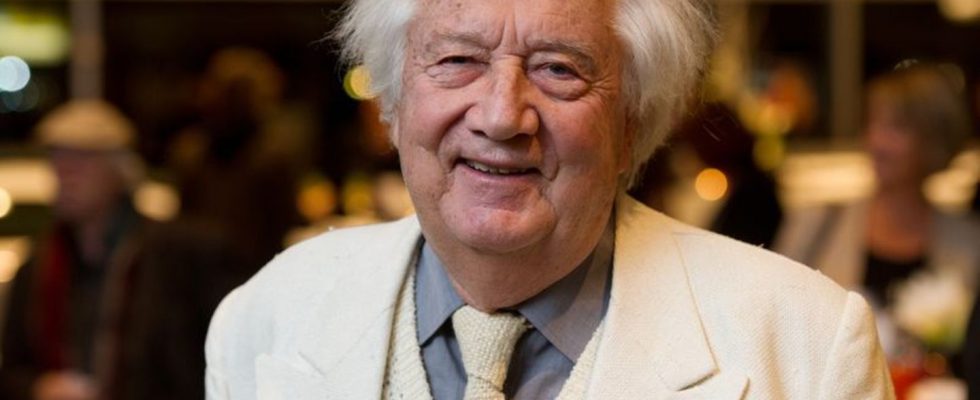Movie
Filmmaker Rainer Erler dies at the age of 90
The director Rainer Erler has died at the age of 90. photo
© Tobias Hase/dpa
Always with a critical eye: Rainer Erler was one of the most productive filmmakers in Bavaria. Now the Munich resident has died at the age of 90.
More than 40 feature films, 14 novels, a good two dozen short stories and short stories, as well as five stage works – the work of the Munich director, producer and author Rainer Erler is impressive. With his artistic contributions he always provided material for discussion. Erler died on Wednesday at the age of 90 in his adopted home of Perth, Australia, his family announced.
Among the most famous works of the in The filmmaker, who grew up in Munich, includes the socially critical comedy “Soul Migration”, the political drama “Plutonium”, the science fiction films “The Blue Palace” and “Operation Ganymede” as well as the psychological thriller “Fleisch”, in which Erler appeared in 1979 The topic of organ trafficking was addressed.
“The film was sold to cinema distributors in 127 countries, Erler recalled in an interview with the German Press Agency shortly before his 85th birthday. “It was an incredible success even in the GDR. They sold 12 million movie tickets there.”
Enthusiasm for the profession
When Erler spoke about cinema and television in old age, his enthusiasm for the profession still came through. His last film was made in 2000, “The Kaltenbach Papers” with Mario Adorf. “It was hard for me to quit,” he said. It was his life, his elixir of life. But also an outlet to point out grievances and unhealthy developments. “I was always an author – and there were more than enough topics back then,” said Erler.
In 2013, Erler received the German Directing Award “Metropolis” for his life’s work. In justifying the award, the jury described his style of unusual fusion of explosive and political topics with science fiction elements as legendary.
He lived his retirement life with the same discipline that he used to approach films and books. He got up very early, had breakfast at 7 a.m. and went swimming for half an hour in the pool at home. He then went on a one-hour hike with his wife Renate, to whom he had been married since 1961.
“Militant non-smoker”
The “militant non-smoker”, as he described himself, spent his twilight years partly near Bad Tölz and partly in Australia with his daughter – until the corona pandemic in 2020 made traveling significantly more difficult.
The elderly couple no longer wanted to endure the strain of a long flight, said Erler shortly before his 90th birthday at the end of August. Why? “We are well looked after here,” he said. His daughter Tatjana lives right next door with her husband and two children.
Erler’s love for the fifth continent arose through filmmaking. He produced in 30 countries – three films, including “The Beautiful End of this World”, went to Australia. He was particularly fond of the city of Perth, and also of his family. Daughter Tatjana went to school there and also studied there.
According to his own statement, Erler recently observed the political goings-on in Germany from a “safe distance”. And what he saw didn’t exactly excite him. “If the Greens and the SPD could implement their plans and visions without the FDP, the future would have a better chance when it comes to climate and energy,” said Erler. The fact that Foreign Minister Annalena Baerbock was unable to travel to Australia due to technical defects in the government plane was a “laughing stock” in his new home.
Otherwise, Erler was convinced that “Made in Germany” is still a seal of quality for cars, kitchen appliances and other technical products in Australia. This also applies to his artistic legacy: Wherever it says Erler, there is timeless quality. His extensive work can be found in the Film and Media Art Archive in Berlin.

